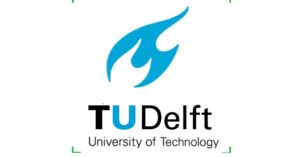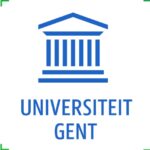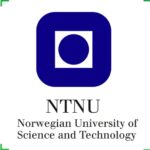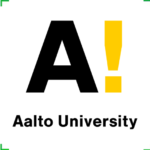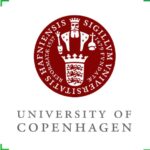Are you holding Master’s degree and ready to elevate your academic journey to the highest level? Delft University of Technology (TU Delft), Netherlands, has announced a multiple fully funded PhD positions awaiting talented individuals like you. Don’t miss your chance to be part of our vibrant academic community. Explore the exciting PhD positions available and submit your application today!”
Candidates interested in fully funded PhD positions can check the details and may apply as soon as possible.
(01) Fully Funded PhD Position
PhD position summary/title:–PhD Position Scalable Graph Learning
Graph machine learning (Graph ML) is an emerging field of artificial intelligence (AI) motivated by the ubiquity of graph-structured data in real-world applications. Graph neural networks (GNNs) serve as a key technology in this area and are successfully used in recommendation systems, financial crime analysis, cybersecurity, and social and biological network analysis. However, conventional GNN architectures are limited in the type and complexity of graph patterns they can detect. For example, cycles, cliques, and frequent motifs can serve as highly discriminative signatures when analysing financial, biological, and social networks. However, cost-efficient and scalable discovery of such patterns in large graphs using neural-network-based approaches is challenging. Although these patterns can be detected using purely combinatorial approaches, such approaches lack statistical learning and adaptation capabilities and have high computational complexity.
Deadline : October 29, 2024
(02) Fully Funded PhD Position
PhD position summary/title:– PhD Position Enhanced Image Processing for Scattered Light Microscopy
We offer an exciting PhD position at TU Delft on the junction of computational imaging, optics, image processing, and biomedical research. Apply now and contribute to a better reconstruction of complex fiber networks in the brain and other biological tissues.
The position is in the group of Dr. Miriam Menzel, at the Department of Imaging Physics. The group works on scattered light microscopy to visualize complex fiber networks. Your task will be to analyze measured scattering signals from different biological tissues, develop enhanced image processing tools to improve the reconstruction of underlying fiber structures, and inform the development of new measurement protocols. Possible projects include the automated classification of fiber types in histopathological tissues, or the estimation of structural sizes based on scattering measurements with different wavelengths.
Deadline : 27 September 2024
View more Fully Funded PhD Positions Click Here
(03) Fully Funded PhD Position
PhD position summary/title:– PhD Position Quantifying the National and Regional Distribution Effects Of Private and Public Adaptation Action
We are looking for a passionate and ambitious researcher to join our team and contribute to understanding how climate finance shapes adaptation and how these adaptation measures, in turn, influence social and economic resilience to climate change. This PhD position will focus on climate physical risks, analyzing the effectiveness of various climate finance mechanisms in supporting adaptation, and exploring socio-economic implications of climate adaptation measures at different scales. This project will target regional economic assessments and financial instruments for climate risks for the Dutch context. This position offers a unique opportunity to perform impactful work at the intersection of advanced academic research and policy-oriented applications. Your research will help shape climate finance policies and instruments, contributing to achieving resilience to climate change across different countries, regions, and sectors.
Deadline : 27 September 2024
(04) Fully Funded PhD Position
PhD position summary/title:–PhD Position Effective Metadata Management for Data-Driven Plant Resilience Enhancement
We are seeking a highly motivated PhD candidate to join our research team focused on Effective Collaborative Metadata Management for Large Data Repositories. The project is part of the Crop-XR program, a highly collaborative 10-year national initiative of universities and industry, with a mission to grow resilient crops developed by data-driven design and AI plant models.
This exciting opportunity will involve analyzing the research gaps for establishing effective metadata management in large data repositories. The most promising identified gaps will be addressed by developing novel innovative workflows and technical solutions.
The goal is to improve the practices of metadata management in plant sciences along the FAIR principles (Findable, Accessible, Interoperable, Reusable) such that complex (AI) models for improving plant resilience can be reliably developed, trained, improved, and deployed.
The models are developed by our partners to predict how plants respond to environmental stresses such as drought, malnutrition, and extreme temperatures. This will allow plants to withstand combinations of stresses brought by a changing climate.
Deadline : September 27, 2024
(05) Fully Funded PhD Position
PhD position summary/title:–PhD Position Value-Based Assessment Methods for AI Systems
AI alignment refers to the goal to make AI systems behave in line with human intentions and values. With the rapid proliferation of AI systems and their growing capability, there are equal risks from misalignment. Validating models is a crucial step before decisions can be made about implementation and is important for continuous monitoring of systems in use. The challenge is, however, that validation needs to happen along a range of different values that are important for AI to possess at the police: accuracy, but also fairness, reliability, trustworthiness, and more need to be ensured.
As a PhD student at TU Delft, you will conduct impactful research on two key aspects in advancing the responsible use of AI within the police force. First, you will investigate the standards and values surrounding AI usage, particularly concerning openly available models to begin with. This entails defining what criteria these models must meet, beyond common considerations like bias and fairness. You will research which values AI systems need to be aligned with through in-depth case studies at the Police. Second, you will also design methods to systematically evaluate a range of models against these established standards and values. This contribution ensures the responsible deployment of AI within the police force, pushes forward our understanding of how to align AI models in practice, and maximizes the efficiency of utilizing publicly available models.
Through these efforts, you will significantly contribute to advancing the important area of AI alignment and help foster an ethical and accountable AI culture within the organization.
Deadline : September 26, 2024
(06) Fully Funded PhD Position
PhD position summary/title:–Two (2) PhD Positions on Algorithms for Formal AI Verification and Explainability
You will conduct both theoretical and empirical research at the intersection of logic, optimization, machine learning, control, monitoring, interpretability, and visualization. Both PhD projects are inspired by real-world deployment of AI, with one leaning towards advancing theory and the other to be done in close collaboration with domain experts from the Netherlands Railways (NS), leading to significant scientific as well as practical impact.
You will be part of the Algorithmics Group in the Department of Software Technology of the Faculty of Electrical Engineering, Mathematics and Computer Science. You will work in a dynamic and diverse environment of other PhD and postdoc researchers excited about making theoretical and algorithmic contributions in intelligent decision making.
Deadline : September 26, 2024
Connect with Us for Latest Job updates
(07) Fully Funded PhD Position
PhD position summary/title:–PhD Position Technology for Electrochemical Membrane Processes
The energy transition impacts all energy- and chemistry-related processes. Two rapidly growing fields in this sector are 1) and conversion of renewable electricity into synthetic chemicals and fuels, such as green hydrogen, and 2) and the electrification of chemical plants. The scales of these processes are astronomical. The chemical industry is responsible for >10% of fossil fuel consumption in EU, from which roughly half the energy is spend on separation processes, and 90-95% of these separation processes are currently thermally driven (i.e., burning fossils). In the transition to renewable energy, electrical-driven separation processes are required at huge scale. Moreover, the electrolyzer capacity is expected to increase from the present-day 40 GW for the EU by 2030, which is >5% of the total EU’s primary energy consumption.
Deadline : 25 September 2024
(08) Fully Funded PhD Position
PhD position summary/title:–2 PhD Positions Fluid Dynamics and Soft Matter of Complex Multicomponent Emulsions
Two PhD positions are available in the Garbin lab (https://garbinlab.org) on the NWO-Vici project “Flow physics of Pickering emulsion reactors for sustainable chemical conversion”. As part of an interdisciplinary team, you will explore the interplay of chemical reaction and transport phenomena in nanoparticle-stabilized emulsions for chemical conversion. We are currently looking for 2 PhD candidates to join the project team, which already comprises 3 postdocs with complementary expertise and working in close collaboration. As a PhD candidate working on this project, you will unravel the flow physics of multicomponent emulsions stabilized by nanoparticles (known as “Pickering emulsions”) and their dynamic evolution during chemical reactions. Although these complex emulsions have proven potential for sustainable chemical conversion, the effects of mass transfer and convection in combination with chemical reactions remain poorly characterized and understood for these systems, which currently limits their potential for applications.
The 2 PhD projects will focus on different, complementary aspects:
- PhD1 will focus on flow physics around a particle-stabilized (Pickering), multicomponent droplet. You will develop and integrate novel experimental approaches including in-situ, real-time visualization of concentration fields and advanced microstructure imaging, combined with microfluidics and multiscale modelling.
- PhD2 will focus on chemical conversion in multiphase reactions. You will explore practical approaches towards the valorization of circular carbon, namely, selective catalytic transformations of CO2 and biomass in close collaboration with the section Inorganic Systems Engineering (Prof. Evgeny Pidko).
Deadline : 23 September 2024
(09) Fully Funded PhD Position
PhD position summary/title:–PhD Position Embedded AI for 6G Networks
Join the frontier of innovation in 6G: the future of mobile networks technology! In the Netherlands, a unique alliance of 60 top-notch ICT companies, semiconductor firms, and research institutions has united to spearhead specific aspects of 6G: (1) software antennas, (2) AI-driven network software, and (3) groundbreaking 6G applications. Join us as a PhD student in this prestigious Future Network Services (FNS) flagship project, where research and entrepreneurial pursuits converge.
6G networks will utilise frequencies from sub 6 GHz to mmWave and THz bands, thereby substantially increasing the number as well as the heterogeneity of the required base stations. This complexity is further exacerbated by (1) the emergence of new network architectures like cell-free networks, (2) novel network services, such as joint communication and sensing, and (3) the evolution to space-air-ground networks. Amidst this complexity, edge AI emerges as a promising solution directly integrated into hardware devices at the edge. Your PhD research revolves around optimising these AI algorithms for base stations with different hardware and computing capabilities. Work on advanced edge/embedded AI models tailored for managing the densely packed frequency bands in 6G networks, and enabling seamless connectivity across space, air, and ground base stations. Your work takes a novel approach by co-designing these models alongside the hosting hardware, ensuring optimal performance and scalability. The result? Hardware-aware, adaptable AI models attuned to the dynamic nature of 6G networks, adjusting model complexity based on available computing resources.
Deadline : Open until filled
(10) Fully Funded PhD Position
PhD position summary/title:–PhD Position Electrokinetic Studies of Clay/Water Interfaces
In this PhD project, the electrokinetic response of polydisperse systems, made of one clay type of various size fractions, will be studied for different volume fractions (from suspensions to porous media), so as to understand the role of each size fraction in the electrokinetic response of a material with a wide pore size distribution.
Experimental techniques such as Dielectric Spectroscopy, Electroacoustics (both Electrokinetic Sonic Amplitude and Colloid Vibration Potential), Electroosmosis and Streaming Potential, Electric birefringence (Kerr effect) will be used to probe surface/water interfaces as function at various material porosities (from suspensions to gels), ionic strengths and pH. A large part of the project will be devoted to set-up, in collaboration with colleagues from Sorbonne Université (France), a new Electroacoustic device, enabling the measurement of the electrokinetic response of concentrated suspensions.
Deadline : 15 September 2024
View Postdoc Positions Click Here
(11) Fully Funded PhD Position
PhD position summary/title:–PhD Position Implications of as-a-service in Buildings to Value
The doctoral project at Delft University of Technology (research project 4b) is part of the response to the objective, ‘Analogue expansion of valuation’. In the circular economy, business models drive future building use potential. One unexplored aspect is the product service system direction. In a very infant stage, some initiatives have been developed that focus on the building as a service. The product service systems approach enables more accountability on the building operation, including e.g. CO2 emissions, because specific services (like elevators, heat systems, or lighting) could be owned and accounted for by service providers. In this context the question arises: what are the implications for the value of the building? This project will explore the implications of product service system applications in buildings on the real estate value. As well as a dissertation, and a number of academic papers, the project will produce an accessible report for real estate professionals.
Deadline : 15 September 2024
(12) Fully Funded PhD Position
PhD position summary/title:–PhD Position Jointly Optimizing Waveforms, Beamforming and Radio Resource Management for Joint Communications and Sensing in 6G Networks
TU Delft’s Microwave Sensing, Signals and Systems (MS3) group and TNO’s (Dutch Organization for Applied Scientific Research) Networks department combine forces in the prestigious Future Network Services (FNS) flagship project to develop innovative solutions enabling joint communications and sensing (JCAS) in 6G networks.
In JCAS, communication and sensing services share a common network infrastructure and radio resources, with the technology and associated management solutions designed to flexibly achieve tailored trade-offs between energy consumption, resource utilization, communications (e.g. user throughput, latency, reliability) and sensing performance (e.g. resolution, probability of detection). We offer a Ph.D. research project focusing on joint optimization and assessment of waveform design, beamforming strategy and radio resource management mechanisms (e.g. power control, antenna aperture sharing, beamforming, scheduling, adaptive waveform, handover control) on communication and sensing performance, aiming to optimize the utilization of the shared radio resources for dual-functional joint communication and sensing systems with balanced performance trade-offs!
Deadline : September 15, 2024
(13) Fully Funded PhD Position
PhD position summary/title:–PhD Position New Approaches to Options Valuation for Circular Real Estate
The doctoral project at Delft university of Technology (research project 1a) is part of the response to the objective, ‘Quantum inspiration and implementation’. This project will explore improvements to valuation and decision-making of real estate on a multitude of parameters. The aim is to make real estate investment decisions more adaptive, by using the time dimension and real options analysis in valuation methods. Time value of money and real options analyses are strongly affected by linear assumptions in investment calculations, for example through interest rates that are smoothened over time. Quantum mechanics can contribute to break open this linearity, as it conceptualises a non-linear world to pioneer models for capturing value assumptions in dynamic and fuzzy real-world conditions. The project will conceptualise new innovative models and analyse how these can more accurately reflect real estate valuation in a circular economy for different industry players. As well as a dissertation, and a number of academic papers, the project will produce an accessible report for real estate professionals.
Deadline : 15 September 2024
(14) Fully Funded PhD Position
PhD position summary/title:–PhD Position Physics-Enhanced Machine Learning for Resilient Railway Infrastructures
Resilient railway infrastructure is vital for ensuring safe, reliable, and sustainable transportation services. However, maintaining infrastructure resilience amidst emerging challenges is essential. These challenges include mitigating the impact of extreme weather events and natural disasters, addressing ageing infrastructure, optimizing maintenance schedules to minimize disruptions, enhancing safety measures to prevent accidents, and adapting to changing operational demands and technological advancements. Overcoming these challenges requires interdisciplinary approaches that integrate cutting-edge technologies, such as physics-enhanced machine learning, with traditional engineering expertise to endure, predict, prevent, and respond to potential threats to railway resilience effectively.
This project aims to improve the resilience of railway infrastructures by leveraging physics-enhanced machine learning. You will integrate state-of-the-art physics knowledge that governs infrastructure mechanics and dynamics with the big data from infrastructure monitoring systems. You will develop innovative physics-enhanced machine learning algorithms and models to address risks and uncertainties associated with the operational and environmental conditions of railway infrastructures. As part of this project, you will engage with railway infrastructure managers to validate your proposed solutions for resilience improvement.
Deadline : 15 September 2024
(15) Fully Funded PhD Position
PhD position summary/title:–PhD Position Surrogate-enabled Uncertainty Quantification for Water Quality Modeling
Reactive transport models are essential for assessing groundwater quality and contamination risks, which are critical for safe drinking water. However, uncertainties in model parameters and data hinder accurate predictions. Traditional uncertainty quantification (so-called Bayesian) methods require extensive computational resources, hindering robust uncertainty quantification for complex models.
This PhD position offers an exciting opportunity to address this challenge by leveraging surrogate modeling techniques. Surrogate models approximate computationally intensive models at reduced cost, enabling uncertainty quantification despite time budget constraints. Recent advances in machine learning techniques also offer promising opportunities to improve surrogate modeling approaches. In this project, you will develop surrogate models tailored to reactive transport models and integrate them into an uncertainty quantification framework.
Deadline : 15th of September 2024
(16) Fully Funded PhD Position
PhD position summary/title:–PhD Position The Impact of Circular Measures on the Life Span of Buildings
The doctoral project at Delft University of Technology (research project 2a) is part of the response to the objective, ‘Value of the building that lasts’. This project will study how exchangeability of building functions and uses contribute to increase buildings’ functional lifespan (i.e. reduce functional obsolescence), and how a prolonged lifespan could increase the value of the building. Here we will develop knowledge about adaptive reuse, circularity and building adaptability to expand the lifespan of real estate and contribute to climate adaptation and mitigation. This project innovatively uses the quantum perspective to answer (1) how to increase the adaptability and lifespan of existing real estate through adaptation and adaptive reuse strategies, (2) which strategies should be applied to achieve future ready real estate, and (3) how will an extended building lifespan contribute to the future value of real estate. This project will follow a research by design methodology, developing and testing new solutions through co-creation, involving all partners of the research consortium. The project explores, develops and tests the value of different uses of a building. Furthermore, this project will develop knowledge about the costs of measures of particularly circularity and building adaptability to finally develop an assessment framework for investing in lifespan extension underpinned with real options appraisal. As well as a dissertation, and a number of academic papers, the project will produce an accessible report for real estate professionals.
Deadline : 15 September 2024
(17) Fully Funded PhD Position
PhD position summary/title:–PhD Position: Insight into Urban Water Vapour
Climate change is already affecting the way we as a society experience the weather. More extremes in temperature, rainfall and wind means we need to adapt ourselves and our cities to the changing climate. While the Urban Heat Island is a well-known driver of heat stress, urban climate processes related to water are less explored, especially the water vapour content of the air. Water vapour is a driving component of heat stress, since it influences the human ability to cool down through sweating. Given that climate adaptation measures in cities often go towards blue-green solutions (water and vegetation), it is important to quantify how these adaptation measures will affect the local urban atmosphere, and impact people’s lives. There are many unanswered questions regarding the importance and the time evolution of urban water vapour, and how to make use of urban blue and green spaces to combat (future) heat stress.
Deadline : 15 September 2024
(18) Fully Funded PhD Position
PhD position summary/title:–PhD position: Pathways for Realising Climate Adaptation in the Wadden Sea (PaRCA)
The PhD aTU Delft will explore methodologies for the intertidal areas to keep pace with SLR. An important question which needs to be addressed as part of that assessment is why the morphology of some of the intertidal areas in the Wadden Sea grow much faster than SLR, which is probably the result of earlier interventions. The resulting relevant timescales dictate when and where to intervene with additional management strategies: interventions may not be needed in areas where accretion is systematic but crucial when accretion rates will rapidly slow down. Through a combination of data analysis (of historic changes) and application of numerical models, the output of the PhD will predict future habitat suitability indexes (ecotope classification) – and strategies how and when to maximise the accretion of these areas under conditions of accelerated SLR of reduced sediment availability.
Deadline : 15 September 2024
(19) Fully Funded PhD Position
PhD position summary/title:–PhD Position Ocean Coastal Trapped Waves
Oceanic wave guides are the ocean’s version of a high-speed internet network: they communicate changes in for example sea level and temperature rapidly to other parts of the ocean. Within this category, Coastal Trapped Waves communicate signals along the edge of the continental shelf, along coastlines, along underwater ridges, in and out of fjords, and between the deep ocean and the shallow shelf areas. As a hybrid between internal Kelvin waves (impacted by ocean stratification) and topographic Rossby waves (impacted by bottom slope), they can change their characteristics when propagating into an area with different topography and/or stratification. The current generation of climate models does not resolve these type of waves; understanding the behavior in realistic ocean settings as well as how they change under different climate conditions is therefore urgently needed. Using a combination of realistic numerical simulations of the ocean and more idealized setups, you will study how Coastal Trapped Waves manifest in realistic situations, how and where they transmit or scatter energy, and how that affects the regional ocean circulation.
Deadline : 14 September 2024
(20) Fully Funded PhD Position
PhD position summary/title:–PhD Position The Natural Rhythm of Estuaries
One large remaining unknown for estuaries is how quickly they respond to environmental change. Equilibrium conditions are fairly well established, and so is the expectation for the direction of estuarine change. Time rates of change, however, are poorly known. Numerical morphodynamic models such as Delft3D are a useful tool to predict fundamental responses of deltas/estuaries to changing boundary conditions and long-term morphodynamic feedbacks. However, model outcomes are hard to test. Recent global datasets of estuaries offer an opportunity. By expanding the number of observations, we can reduce the influence of complicated local field conditions and extract (sometime subtle) rates of change that we can then further explain with numerical models.
The aim of this PhD project is to unite Delft3D simulations and global datasets, and better understand rates of estuarine change. We envision that you will:
- Identify boundary conditions of global estuaries, including the range in discharge peaks & intermittency, sediment supply, and dimensions, based on literature and databases.
- Run idealized Delft3D simulations and characterize morphodynamic feedbacks in estuaries of different sizes to varying discharge peaks and sediment supply, and link this to natural systems.
- Based on the interest of the PhD candidate: develop scenarios to test the adaptation rate of estuaries to direct anthropogenic pressures (e.g. dredging, dams and floodplain constraints), explore the effect of climate change scenarios (e.g changing discharge) or look into spatially varying natural processes (e.g. vegetation, biota)
Deadline : 9 September 2024
(21) Fully Funded PhD Position
PhD position summary/title:–Phd Position Modelling Solid Oxide Fuel Cells – Gas Turbine (SOFC-GT) for Aviation
We are looking for a highly motivated PhD candidate to work on the EU-funded project HYLENA (HYdrogen eLectrical Engine Novel Architecture). The project aims to investigate, develop, and optimize a groundbreaking hydrogen-powered electrical aircraft propulsion concept. This role involves advanced simulation and dynamic modelling to enhance the efficiency and reliability of the Solid Oxide Fuel Cell-Gas Turbine (SOFC-GT) concept in aerospace applications.
HYLENA focuses on integrating Solid Oxide Fuel Cells (SOFCs) with turbomachinery to maximize propulsive efficiency by utilizing both electric and thermal energy. This innovative engine concept leverages the synergistic use of:
- An electrical motor as the main driver for propulsion.
- Hydrogen-fuelled SOFC stacks optimized for nacelle integration.
- A gas turbine to thermodynamically integrate with the SOFC.
This technology aims to significantly reduce climate impact by being completely carbon-neutral, while radically increasing overall efficiency for short and medium-range aircraft.
Deadline :6 September 2024
(22) Fully Funded PhD Position
PhD position summary/title:–PhD Position
At ChemE a project has been opened funded by the Dutch government through the Netherlands National Growth Fund. This position is part of a large consortium, SolarNL consisting of industrial parties, higher education institutes, TNO and SolarLab. The project aims at improving the photovoltaic efficiency of new technologies by implementing novel materials with improved opto-electronic properties.
The PhD student will cary out fundamental research on improving the performance of solar cells based on single or double junctions on solid or flexbile substrates.
- Formulate methods to deposit perovskites using vacuum based techniques
- Characterisation of perovskite materials using advanced analytic tools
- Develop appropriate contact layers and prototype cells
- Identify loss mechanisms by various optical and electric methods
- Deveop strategies to overcome unwanted recombination
Deadline : Open until filled
(23) Fully Funded PhD Position
PhD position summary/title:–PhD Position Sustainable Steel Production Modelling Solid Pile Formation in Reduced Electric Furnaces
The objective of the “Groeien met Groen Staal” program, funded by the Dutch National Growth Fund, is to help and prepare the steel industry for a green transition. The transition towards sustainable steel production necessitates significant alterations requiring novel processes and equipment. However, the technology for novel equipment remains underdeveloped, and the processes occurring within them are not fully comprehended. Therefore, modelling should be enhanced to optimize furnace operations. This will be done by developing a framework of numerical models to gain insights into the complex phenomena within these furnaces.
This PhD project aims to describe solid pile formation in a Reduced Electric Furnace. This is a novel approach to producing high-quality green steel, but its large-scale applicability needs to be proven. Can you help achieve this? You will work on developing a Discrete Element Model that describes the feed of pellets in the furnace. The challenge lies in the complex interplay between feeding, melting, and multiphase particulate flow in the slag layer and in the molten hot metal layer. Ultimately, the resulting model will be integrated into larger computational fluid dynamics (CFD) models that encompass the entire furnace system based on your work and the work of other PhDs in the program. Collaboration with industrial partners and researchers from various universities is a key aspect of this project.
Deadline : 4 September 2024
About Delft University of Technology (TU Delft), Netherlands –Official Website
Delft University of Technology, also known as TU Delft, is the oldest and largest Dutch public technical university. Located in Delft, Netherlands, it is consistently ranked as one of the best universities in the Netherlands, and as of 2020 it is ranked by QS World University Rankings among the top 15 engineering and technology universities in the world.
With eight faculties and numerous research institutes, it has more than 26,000 students (undergraduate and postgraduate) and 6,000 employees (teaching, research, support and management staff).
The university was established on 8 January 1842 by William II of the Netherlands as a Royal Academy, with the primary purpose of training civil servants for work in the Dutch East Indies. The school expanded its research and education curriculum over time, becoming a polytechnic school in 1864 and an institute of technology (making it a full-fledged university) in 1905. It changed its name to Delft University of Technology in 1986.
Dutch Nobel laureates Jacobus Henricus van ‘t Hoff, Heike Kamerlingh Onnes, and Simon van der Meer have been associated with TU Delft. TU Delft is a member of several university federations, including the IDEA League, CESAER, UNITECH International and 4TU.
Disclaimer: We try to ensure that the information we post on JobPetal.com is accurate. However, despite our best efforts, some of the content may contain errors. You can trust us, but please conduct your own checks too.
Related Posts
- 10 Fully Funded PhD Positions at Utrecht University, Netherlands
- 18 Fully Funded PhD Positions at Ghent University, Belgium
- 20 Fully Funded PhD Positions at NTNU, Norway
- 07 Fully Funded PhD Positions at Aalto University, Finland
- 10 Fully Funded PhD Positions at University of Basel, Switzerland
- 04 Fully Funded PhD Positions at Aalborg University, Denmark
- 07 Fully Funded PhD Positions at University of Helsinki, Finland
- 20 Fully Funded PhD Positions at University of Amsterdam, Netherlands
- 10 Fully Funded PhD Positions at Technical University of Denmark (DTU), Denmark
- 20 Fully Funded PhD Positions at University of Copenhagen, Denmark
- 04 Fully Funded PhD Positions at Karolinska Institute, Sweden
- 16 Fully Funded PhD Positions at Uppsala University, Sweden
